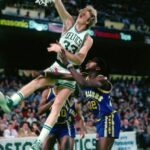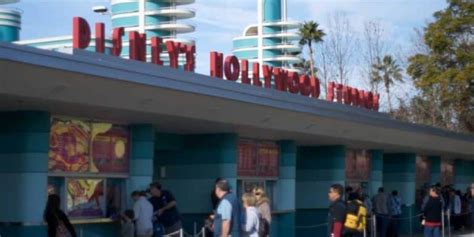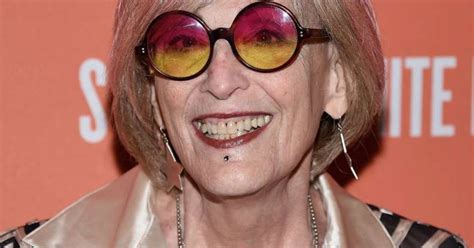
Guitar legend Eric Clapton, 81, recently left a concert performance early, sparking concern among fans, though reports indicate he’s doing well despite experiencing discomfort on stage. The incident occurred mid-performance at the Utilita Arena in Birmingham, England, leaving attendees surprised and prompting a flurry of speculation online about the iconic guitarist’s health.
Clapton Abruptly Ends Concert Due to Onstage Discomfort
The Birmingham concert, part of Clapton’s ongoing tour, took an unexpected turn when the musician signaled he could no longer continue. According to concertgoers, Clapton appeared to be struggling during a rendition of “Cocaine,” one of his signature songs. He was seen grimacing and adjusting his guitar multiple times before ultimately addressing the audience and announcing he was unable to proceed.
“Eric Clapton left the stage mid-performance at his Birmingham concert on Thursday night, leaving fans concerned,” reported several attendees via social media platforms shortly after the event. The abrupt departure immediately ignited discussions online, with many expressing worries about the health and well-being of the legendary musician, who turned 81 in March.
A representative for Clapton has since released a statement clarifying the situation. “Following tonight’s performance, Eric Clapton felt that he could not continue with the show and left the stage. He is, however, doing well. He is deeply disappointed that he couldn’t complete the performance but it was necessary at that moment,” the statement read. The representative also assured fans that Clapton is receiving appropriate care and is expected to continue the tour as scheduled.
Fan Reactions and Social Media Buzz
The incident at the Utilita Arena reverberated across social media, with fans sharing their experiences and offering supportive messages to Clapton. Many concert attendees posted videos and photos of the performance, documenting the moments leading up to his departure.
“He seemed to be in pain for much of the set, especially during ‘Cocaine’. It was clear something wasn’t right,” one fan commented on Twitter. “Hope he’s okay. He’s given us so much over the years.”
Others noted that Clapton’s performance had been strong up to that point, praising his guitar skills and stage presence. However, the sudden ending left a palpable sense of unease in the arena. Several attendees mentioned that the band continued playing for a few minutes after Clapton left, seemingly unsure of what to do, before eventually stopping the show altogether.
The hashtag #EricClapton quickly became a trending topic, with fans from around the world expressing their concern and sending their best wishes. Some speculated about the potential causes of Clapton’s discomfort, ranging from a recurrence of previous health issues to simple exhaustion.
Clapton’s Health History and Recent Performances
Eric Clapton has faced numerous health challenges throughout his career. In the 1990s, he battled alcoholism and drug addiction, experiences he has openly discussed in interviews and documentaries. He has also suffered from peripheral neuropathy, a condition that affects the nerves and can cause pain and weakness in the hands and feet.
In a 2016 interview, Clapton revealed that he had been diagnosed with the condition, which he said made playing the guitar increasingly difficult. “I’ve had quite a lot of pain over the last year. It started with lower back pain, and turned into what they call peripheral neuropathy, which is where you have shooting pain in your legs,” he explained.
Despite these challenges, Clapton has continued to tour and record music, demonstrating remarkable resilience and dedication to his craft. His recent performances have generally been well-received, with critics praising his enduring talent and passion. However, the incident in Birmingham serves as a reminder of the physical demands of performing at his age and the health challenges he faces.
Clapton’s recent outspoken views on vaccine mandates and COVID-19 restrictions have also drawn attention and criticism. He has publicly opposed mandatory vaccinations and mask-wearing, even releasing songs expressing his views on these topics. This stance has alienated some fans while solidifying support from others who share his beliefs. These controversies, however, were not directly related to the abrupt ending of the Birmingham concert but have contributed to the broader narrative surrounding the artist’s public image.
The Impact on the Tour and Future Performances
Following the Birmingham concert, questions arose about the future of Clapton’s tour. However, the official statement from his representative indicated that he is expected to continue with the scheduled dates. Fans are eagerly awaiting updates on his condition and whether any changes will be made to the remaining performances.
“He is deeply disappointed that he couldn’t complete the performance but it was necessary at that moment,” the statement reiterated. This suggests that Clapton is committed to fulfilling his touring obligations as long as his health permits.
The incident has also sparked a broader conversation about the challenges faced by aging musicians who continue to perform at a high level. Many artists in their 70s and 80s have spoken about the physical and mental demands of touring, and the need to prioritize their health and well-being.
Background on Eric Clapton’s Illustrious Career
Eric Clapton’s career spans over six decades, during which he has established himself as one of the most influential and respected guitarists in history. Born in Ripley, Surrey, England, in 1945, Clapton began playing guitar as a teenager and quickly developed a reputation for his exceptional talent and blues-inspired style.
He first gained prominence as a member of the Yardbirds, a British blues-rock band that also included future guitar legends Jeff Beck and Jimmy Page. Clapton’s time with the Yardbirds was relatively brief, but it marked the beginning of his rise to stardom.
In 1966, he joined John Mayall & the Bluesbreakers, where his playing gained further recognition and solidified his reputation as a guitar virtuoso. His solos on the band’s self-titled album are considered some of the finest blues guitar work ever recorded.
Clapton left the Bluesbreakers in 1966 to form Cream, a power trio with bassist Jack Bruce and drummer Ginger Baker. Cream’s blend of blues, rock, and psychedelic music made them one of the most popular and influential bands of the late 1960s. The band’s hits included “Sunshine of Your Love,” “White Room,” and “Crossroads,” all of which featured Clapton’s signature guitar playing.
After Cream disbanded in 1968, Clapton formed Blind Faith, another supergroup featuring Steve Winwood, Ginger Baker, and Rick Grech. Blind Faith released only one album before breaking up, but it was a commercial success and further cemented Clapton’s status as a rock icon.
In the 1970s, Clapton embarked on a successful solo career, releasing a string of hit albums including “Eric Clapton,” “461 Ocean Boulevard,” and “Slowhand.” His solo work showcased his versatility as a musician, incorporating elements of blues, rock, pop, and reggae.
Clapton has won numerous Grammy Awards and has been inducted into the Rock and Roll Hall of Fame three times: as a member of the Yardbirds, Cream, and as a solo artist. He is widely regarded as one of the greatest guitarists of all time, and his music continues to inspire and influence generations of musicians.
His personal life has also been subject to much scrutiny, including his well-documented struggles with addiction and his tragic loss of his son Conor in 1991. He channeled his grief into the song “Tears in Heaven,” which became one of his biggest hits and a testament to his ability to express deep emotion through his music.
Analysis of the Incident and its Implications
The abrupt ending of the Birmingham concert raises several important questions about the challenges faced by aging performers and the evolving relationship between artists and their fans. While the official statement from Clapton’s representative suggests that he is expected to continue the tour, it is clear that his health will need to be carefully monitored.
The incident also highlights the importance of transparency and communication between artists and their audiences. Fans are understandably concerned when a performer abruptly leaves the stage, and clear and timely information can help to alleviate anxiety and prevent speculation.
Moreover, the reaction to Clapton’s departure underscores the deep connection that many fans feel with their favorite musicians. For many, Clapton’s music has been a constant presence in their lives, providing comfort, inspiration, and a sense of community. The outpouring of support and concern following the Birmingham concert reflects this profound emotional investment.
The event may also prompt other aging musicians to reassess their touring schedules and prioritize their health and well-being. While the desire to continue performing for fans is understandable, it is essential to strike a balance between artistic ambition and physical limitations.
Ultimately, the incident in Birmingham serves as a reminder of the human element in music performance. Even the most accomplished and experienced artists are subject to the vagaries of health and the challenges of aging. The ability to adapt, communicate, and prioritize well-being is essential for ensuring that these artists can continue to share their gifts with the world for as long as possible.
The fact that the audience was understanding and supportive speaks to the respect and admiration Clapton has garnered over his long career. It’s a testament to the enduring power of his music and the strong bond he shares with his fans. This incident, while concerning, could also lead to a more open dialogue about the realities of aging in the music industry and the support systems needed to help artists continue doing what they love while maintaining their health and well-being.
The incident also brings up the question of legacy and how artists want to be remembered. For Clapton, his legacy as one of the greatest guitarists of all time is already secure. However, the way he manages his health and career in the coming years will undoubtedly add another layer to that legacy. Will he continue to push himself to perform at the highest level, or will he prioritize his health and perhaps focus on other aspects of his career, such as recording or mentoring younger musicians?
The Birmingham concert, therefore, is more than just an isolated event. It is a reflection of the complex interplay between artistry, aging, health, and the enduring bond between musicians and their fans. It’s a moment that invites reflection on the challenges and triumphs of a long and storied career, and the future of a music legend. The episode also has the potential to affect ticket sales and the overall dynamics of his future concerts. Some fans might be more cautious about purchasing tickets, concerned about the possibility of a shortened or interrupted performance. Conversely, others might be even more eager to attend, wanting to show their support and witness Clapton’s performances while they still can. It will be interesting to observe how this event influences the attendance and atmosphere of his upcoming shows.
Furthermore, this situation might prompt the music industry to consider implementing more robust support systems for aging performers. This could include providing better access to healthcare, offering more flexible touring schedules, and creating resources to help artists manage the physical and mental demands of performing at an advanced age. The goal would be to ensure that these artists can continue to share their talents with the world while prioritizing their health and well-being.
Finally, the Birmingham incident serves as a potent reminder of the importance of cherishing the moments we have with our favorite artists. Time is fleeting, and the opportunity to witness these legends perform live is a privilege that should not be taken for granted. As fans, we can show our appreciation by attending their concerts, listening to their music, and supporting their creative endeavors. In doing so, we not only honor their contributions to the world of music but also create lasting memories that we can cherish for years to come.
FAQ Section
1. What happened at Eric Clapton’s concert in Birmingham? Eric Clapton, 81, abruptly ended his concert at the Utilita Arena in Birmingham, England, mid-performance due to experiencing discomfort on stage. He left during a rendition of “Cocaine,” signaling he could no longer continue. According to his representative, he “felt that he could not continue with the show and left the stage,” but he is “doing well.”
2. What was the reaction of fans to Clapton leaving the stage? Fans expressed concern and surprise on social media, with many posting videos and comments about Clapton’s apparent discomfort. There was a widespread outpouring of support and well wishes for his health and well-being. Attendees noted that he seemed to be in pain, particularly during the song “Cocaine.”
3. What is Eric Clapton’s health history, and has he faced health challenges before? Yes, Eric Clapton has faced health challenges, including past struggles with alcoholism and drug addiction. He also suffers from peripheral neuropathy, a condition that affects the nerves and can cause pain and weakness in the hands and feet. He disclosed this diagnosis in a 2016 interview, mentioning the difficulties it poses for his guitar playing.
4. Will the rest of Eric Clapton’s tour be affected by this incident? According to his representative, Eric Clapton is expected to continue with the scheduled tour dates. The statement indicated that he was disappointed he couldn’t complete the Birmingham performance but that it was necessary at that moment. His team is likely monitoring his health closely to ensure he can fulfill his touring obligations.
5. What controversies has Eric Clapton been involved in recently? In recent years, Eric Clapton has drawn attention and criticism for his outspoken views on vaccine mandates and COVID-19 restrictions. He has publicly opposed mandatory vaccinations and mask-wearing, even releasing songs expressing his views on these topics. This stance has alienated some fans while solidifying support from others who share his beliefs. These views are separate from the health concerns that caused the abrupt concert ending.
6. What did Eric Clapton’s representative say about the incident?
*The representative stated: "Following tonight’s performance, Eric Clapton felt that he could not continue with the show and left the stage. He is, however, doing well. He is deeply disappointed that he couldn’t complete the performance but it was necessary at that moment."*7. What song was Eric Clapton performing when he stopped the concert?
*According to reports and fan accounts, Eric Clapton was performing his signature song "Cocaine" when he indicated that he could no longer continue the performance.*8. How has Eric Clapton’s peripheral neuropathy affected his playing?
*In a 2016 interview, Clapton stated that his peripheral neuropathy causes shooting pain in his legs, making it increasingly difficult to play the guitar. He has managed to continue performing despite this condition, demonstrating his dedication to his craft.*9. What are some of Eric Clapton’s most significant career achievements?
*Eric Clapton is a highly influential guitarist with a career spanning over six decades. He has been a member of the Yardbirds, John Mayall & the Bluesbreakers, Cream, and Blind Faith. As a solo artist, he has released numerous hit albums and won multiple Grammy Awards. He has been inducted into the Rock and Roll Hall of Fame three times, cementing his status as one of the greatest guitarists of all time.*10. What impact did the death of his son Conor have on Eric Clapton’s music?
*The tragic loss of his son Conor in 1991 deeply affected Eric Clapton and influenced his music. He channeled his grief into the song "Tears in Heaven," which became one of his biggest hits and a testament to his ability to express deep emotion through his music. The song is a poignant reflection on loss and healing.*








